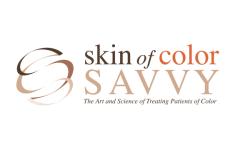
OR WAIT null SECS
FDA Approves Interchangeable Biosimilar to Ustekinumab
The FDA announced the approval of ustekinumab-auub (Wezlana) as a biosimilar and interchangeable to ustekinumab (Stelara) for a half dozen inflammatory conditions on October 31, 2023.
The US Food and Drug Administration has approved ustekinumab-auub (Wezlana) for the treatment of multiple inflammatory diseases.
Approved as a biosimilar to and interchangeable with ustekinumab (Stelara) the agent received indications for pediatric and adult populations with plaque psoriasis and psoriatic arthritis, with additional indications in Crohn disease and ulcerative colitis among adults. Announced on October 31, 2023, approval of ustekinumab-auub was awarded to Amgen Inc.
“Biosimilar medications offer additional safe and effective treatment options that have the potential to increase access for people requiring treatment for inflammatory diseases,” said Nikolay Nikolov, MD, director of the Office of Immunology and Inflammation in the FDA’s Center for Drug Evaluation and Research. “Today’s approval could have a meaningful impact for patients managing their disease.”
The initial FDA approval of ustekinumab occurred in September 2009, when the IL-12 and IL-23 inhibitor received an indication for treatment of adult patients 18 years or older with moderate to severe plaque psoriasis who are candidates for phototherapy or systemic therapy. In the next 14 years, the agent would go on to receive approvals for a slew of inflammatory diseases, including Crohn disease and ulcerative colitis. With approval ustekinumab-auub received 6 indications from the FDA.
In adult patients, ustekinumab-auub is approved for those with moderate to severe plaque psoriasis who are candidates for phototherapy or systemic therapy, active psoriatic arthritis, moderately to severely active Crohn disease, and moderately to severely active ulcerative colitis. In pediatric patients 6 years of age and older, ustekinumab-auub is approved for moderate to severe plaque psoriasis who are candidates for phototherapy or systemic therapy and active psoriatic arthritis.
According to a statement from the FDA, the approval of ustekinumab-auub is based on a comprehensive review of scientific evidence, which demonstrated the agent was highly similar to ustekinumab and there were no clinically meaningful differences between the products in regard to safety, purity, and potency. The FDA pointed out this review included
The FDA also called attention to the safety profile of ustekinumab-auub, which the agency noted was similar to that of ustekinumab. According to the FDA, the most common adverse reactions observed with ustekinumab products are nasopharyngitis, upper respiratory tract infection, headache, fatigue, nausea, vomiting, injection site erythema, vulvovaginal candidiasis/mycotic infection, bronchitis, pruritus, urinary tract infection, sinusitis, abdominal pain, influenza, fever, and diarrhea.
“Today’s approval exemplifies the FDA’s longstanding commitment to support a competitive marketplace for biological products,” said Sarah Yim, MD, director of the Office of Therapeutic Biologics and Biosimilars in the FDA’s Center for Drug Evaluation and Research. “This approval can empower patients by helping to increase access to safe, effective and high-quality medications at potentially lower cost.”
References:
- Office of the Commissioner. FDA approves interchangeable biosimilar for multiple inflammatory diseases. U.S. Food and Drug Administration. Accessed October 31, 2023. https://www.fda.gov/news-events/press-announcements/fda-approves-interchangeable-biosimilar-multiple-inflammatory-diseases.
- Stelara TM (ustekinumab) receives FDA approval for treatment of moderate to severe plaque psoriasis with four-times-a-year maintenance dosing. Johnson & Johnson. September 25, 2009. Accessed October 31, 2023. https://johnsonandjohnson.gcs-web.com/news-releases/news-release-details/stelara-tm-ustekinumab-receives-fda-approval-treatment-moderate.
- Stelara. Package Insert. Janssen Biotech, Inc; 2016.


